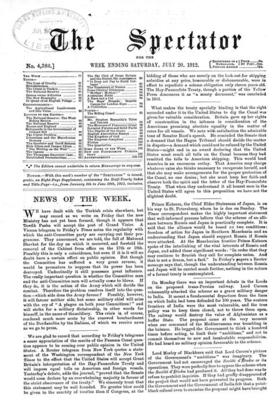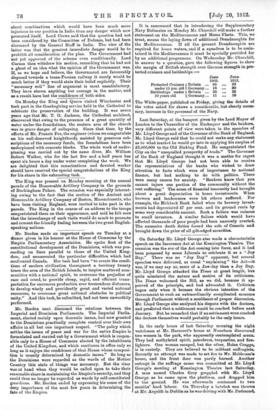Lord Morley of Blackburn said that Lord Curzon's picture of
the Government's " ambitions " was imaginary. The Government had not encouraged the Societe d' fitudes or its operations. They were perfectly free to oppose the scheme when the Societe d'Etudes bad produced it. All they had done was to refuse to prohibit inquiries. If they had gruffly disapproved of the project that would not have prevented its progress. Both the Government and the Government of India felt that a point- blank refusal even to examine the proposal might have brought about combinations which would have been much more injurious to our position in India than any danger which now presented itself. Lord Crewe said that the question had not been considered by the Committee of Defence, but had been discussed by the General Staff in India. The view of the latter was that the greatest immediate danger would be to prohibit all consideration of the plan. The Government had not yet approved of the scheme even conditionally. Lord Curzon then withdrew his motion, remarking that he had not a ghost of an idea what the opinion of the Government was. If, as we hope and believe, the Government are favourably disposed towards a trans-Persian railway it surely would be much better if they would state their belief explicitly. Their "necessary evil" line of argument is most unsatisfactory. They have shown anything but courage in the matter, and as a result have lost the confidence of both sides.







































